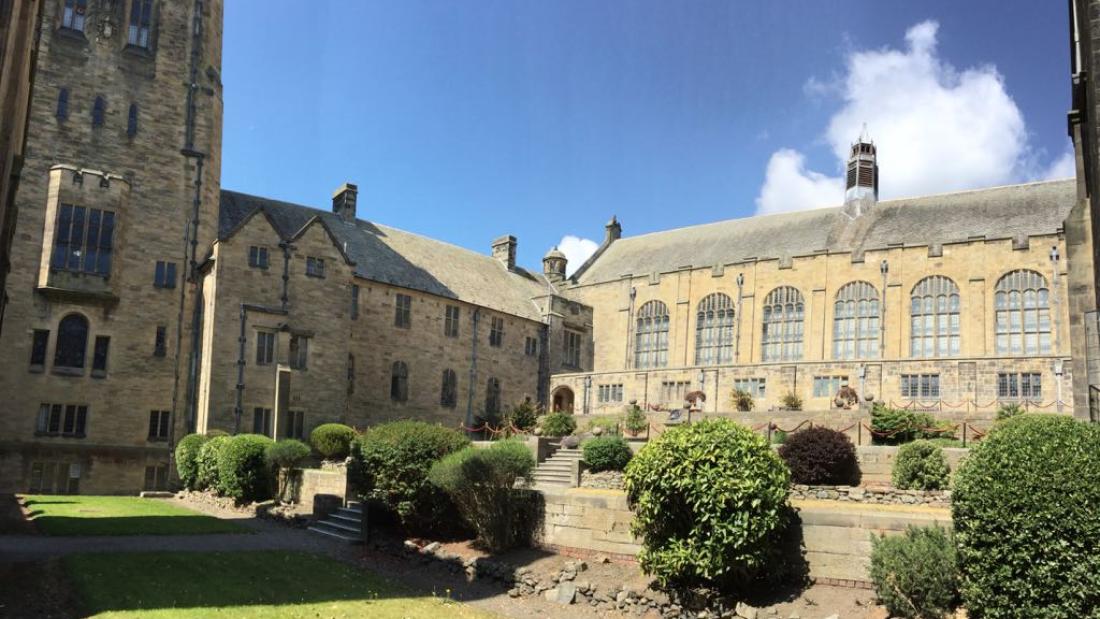You will experience a range of teaching methods throughout your course including lectures small group formats (tutorials) online learning environments self-directed or collaborative study experiential learning and problem-based learning.
Your usual week will be made up of twelve hours of lectures along with fortnightly one-hour tutorials.
During your time with us you will foster self-management skills including an ability to reflect on your own learning make effective use of feedback and an ability to work in a team.
You will develop the ability to conduct independent research including accurate identification of issues which require researching retrieval and critical evaluation of relevant information from a range of appropriate sources including primary legal sources.
The level of challenge and achievement you will be faced with is gradually increased throughout your course.
Our learning teaching and assessment procedures will give you the opportunity to demonstrate that you have met the necessary skills and qualities within your law course. We recognise the importance of inclusive practice and are sensitive to equal opportunities requirements as indicated by good practice and relevant legislative obligations.
A wide range of assessment methods are used to determine your overall achievement; these assessments may be timed or untimed seen or unseen continuous or examination based. Tasks that you might encounter could include essays and reports of varying length; case notes; statutory interpretation; briefs; critiques of articles; oral video presentations; moots; skills-based assessments; reflective learning journals; research project dissertation; and work clinic-based assessments.
What will you study on this course?
In Year 1 students will take 80 credits from the following Law topics Contract Law Criminal Law Legal Skills and Public Law. Students will take 40 credits from Psychology topics such as Brain and Mind Criminal Psychology Social Influence Stress & Distress in Health & Mental Health and Scientific Writing and Communication.
In Year 2 students will take 80 credits from the following Law topics Equity and Trusts Land Law Law Justice and Procedure and Tort Law. Students will take 40 credits from Psychology topics such as Behavioural Psychology Biological Psychology Cognitive Psychology Developmental Psychology Personality and Individual Differences and Social Psychology.
In Year 3 students will take a total of 120 credits. Students will study topics such as Practical Professional Skills Business Law & Practice Property Practice and Wills & Estates. Students will take 40 credits in optional Law modules such as Business Law & Practice Commercial Law Criminal Evidence Dissertation Endangered Wildlife and International Law Environmental Law Family and Welfare Law Intellectual Property Law International Law and Contemporary Issues International Law of the Sea Law and Social Justice Law and Technology Law Justice and Rights Media Law Preserving Cultural Heritage Property Practice Sports Law and Work Placement . Students will also take 40 credits in Psychology from topics such as Applied Behaviour Analysis Born to Run: Achieve your goals Brain Development and Degeneration Cognitive Neuroscience Consumer Psychology: Theory Control of Mental Processes Counselling Skills Disorders of Literacy: Diagnosis and Intervention Forensic Psychology Mindfulness Psychoacoustics and Auditory Neuroscience Psychophysiology of Eating Stress Anxiety and Health The Body in the Mind The Social Brain Children Families and Society and Topics in Illness and Disability.
Please note course content is for guidance purposes only and may be subject to change.
Show less 